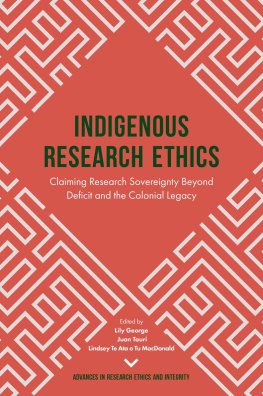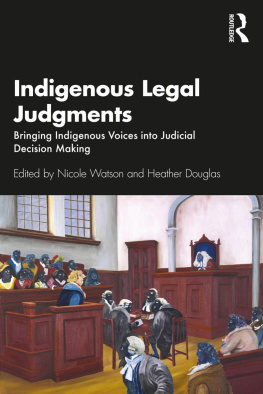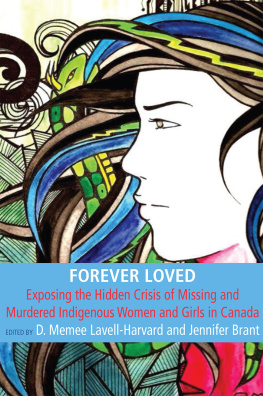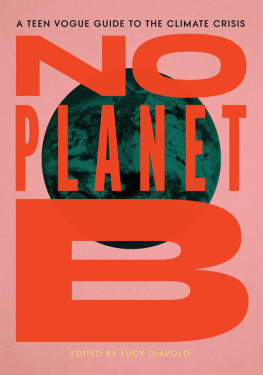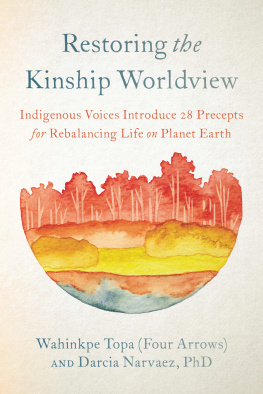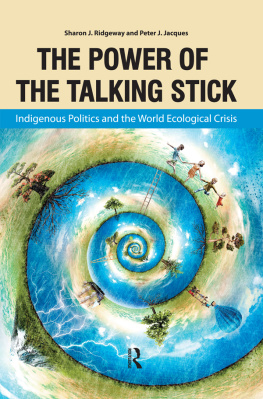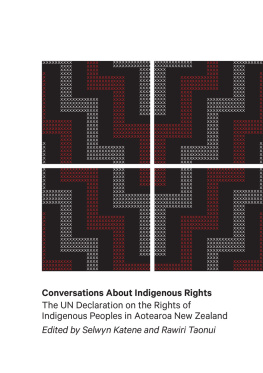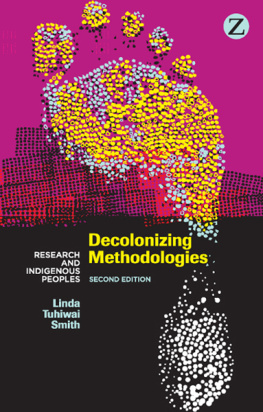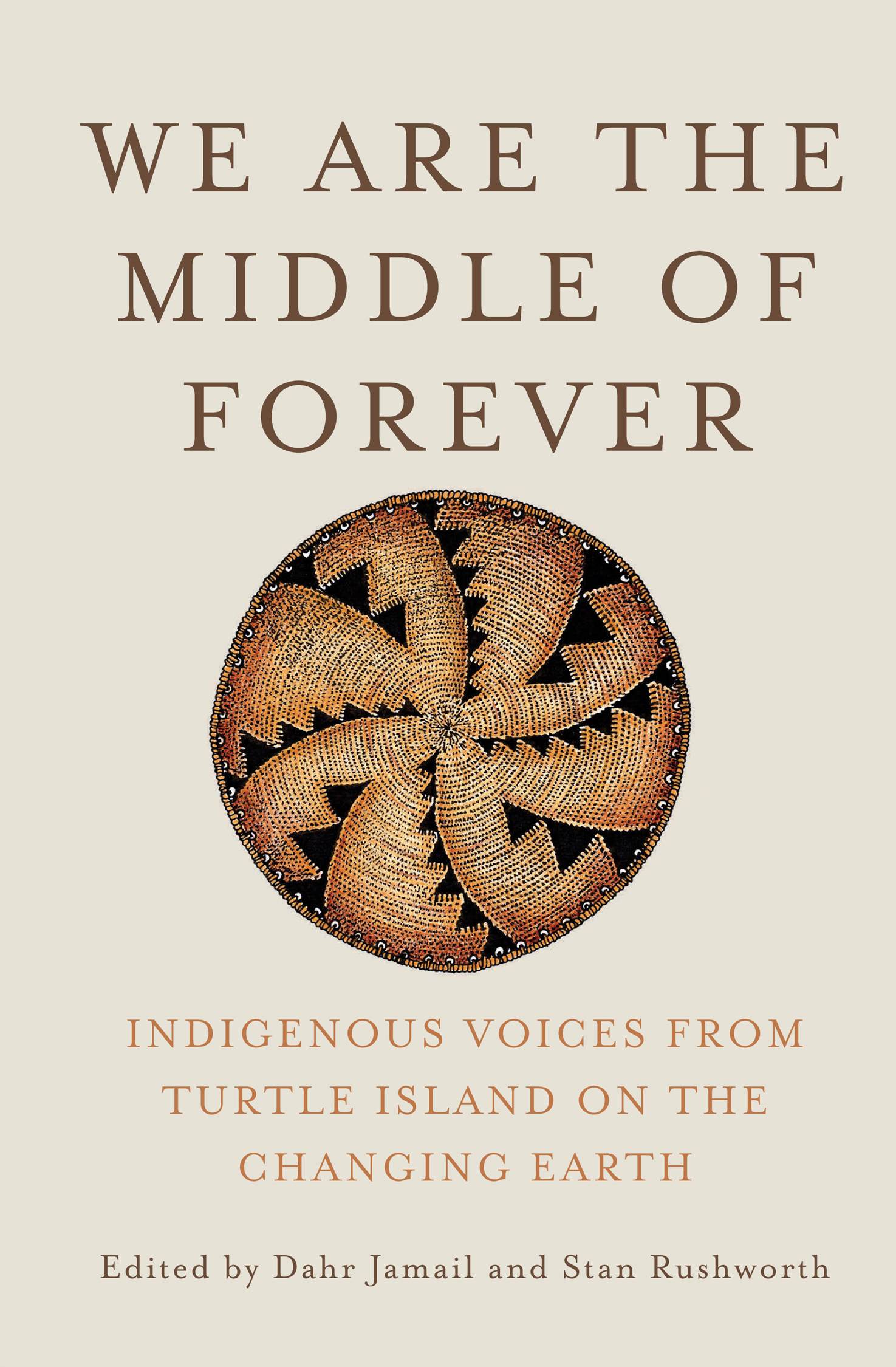Contents
Guide
Pagebreaks of the print version
ALSO BY DAHR JAMAIL
The End of Ice: Bearing Witness and Finding Meaning
in the Path of Climate Disruption
The Will to Resist: Soldiers Who Refuse to Fight
in Iraq and Afghanistan
Beyond the Green Zone: Dispatches from an Unembedded
Journalist in Occupied Iraq
ALSO BY STAN RUSHWORTH
Diasporas Children
Going to Water: The Journal of Beginning Rain
Sam Woods: American Healing
We Are the Middle of Forever
INDIGENOUS VOICES FROM TURTLE ISLAND ON THE CHANGING EARTH
Edited by Dahr Jamail
and Stan Rushworth

For All Our Relations
We are the middle of forever.
John Trudell (Santee)
Contents
Preface
We often hear that We have never been here before. A great number of species are going into extinction, we are experiencing a global pandemic, global changes in weather patterns are causing social and environmental upheavals worldwide, the Earth is on a trajectory of warming certain to cause further upheavals in both human and nonhuman communities, and scientists debate the origins of what they call the Anthropocene period, said to be the cause of all this havoc. For a great many people, the statement that We have never been here before means that the results of human behavior impacting Earth and the future were not apparent to them until now, yet this is not the case for all people or cultures. For the Indigenous people of the world, radical alteration of the planet, and of life itself, is a story many generations long.
For the Plains people of North America, elimination of the buffalo, from 60 million down to a few hundred, took only one human generation in the early to mid-nineteenth century. Near the turn of the twentieth century, a Plains Indian man famously said, I know more dead than I know living. For California Indians, a greater than 90 percent population reduction occurred in the last half of the nineteenth century as a result of sanctioned settler mayhem. These are only two examples in one short time frame, examples of a vast and radical change begun centuries earlier than this one for tremendous numbers of people, wherever colonizing societies reached them. For Indigenous throughout the Americas, disease, starvation, resource extraction, and enslavement have taken huge tolls, and the repercussions, if not the specific perpetuation of those same forces, continue to cause radical alteration of life as we know it. The same experience holds all over the world.
In the search for solutions to the vast array of problems facing the global community today, many people are looking into other cultural models for new ideas, ideas that can also be seen as very old ways of being, ways that were not so destructive in the long term. People search for Indigenous Wisdom as they imagine it to be, because with a backward glance, and most especially through a deeper study, it is apparent that Indigenous societies have largely had a much more integrated relationship to Earth and its member-beings.
This collection of interviews hopes to be an aid to those looking for ideas and responses to the conditions of today, by presenting a wide variety of perspectives on what has happened, what continues to happen, and what will likely occur in the near- and long-term future, given the trajectories that surround us. Indigenous peoples have had to adapt, to persevere, to be courageous and resourceful in the face of destruction, and this is not a simple task. It is a very complex and long-standing effort, and much can be learned by listening to the individual and collective human experiences involved. In this light, the people in these pages represent many different Indigenous cultures and communities, generations, and places within Indigenous and non-Indigenous society alike. They are telling their own stories, conveying their ideas and feelings about where we all now stand, and each one is seeking to make a contribution to a deeper understanding of how we may respond in the best way possible. For many Indigenous cultures, the power of story is that each listener may find themselves within the story, and, when confronted with a crucial decision to make in their own lives, gain from it. The story becomes an active tool, and this collection is offered in that spirit.
Stan Rushworth
Early Warnings
This story was related in 1992 by an anthropologist and archaeologist, in a class on the History of the Non-Western Peoples of North America, and it has stayed prominent in my mind since then:
At the turn of the twentieth century, as the industrial revolution swung into high gear, industrialists realized that Indian reservation lands once thought to be of little value contained the minerals, oil, and gas needed by an industrial economy. They went to the leaders of those communities, many of whom still maintained their older ways of governing, with women central in decision making, as well as listening to all concerned tribal members. The industrialists promised riches, money to move into the modern world, but the Native communities, especially the grandmothers, said, No, this is not the right way to relate to the Mother, and there will be consequences. The industrialists then went to Congress and asked it to form a solution to this problem, which resulted in these words spoken on the floor: We must destroy the sense of community, foster a sense of the individual, and create a good Protestant work ethic. The professor went on to describe the resulting reorganization of Native communities by the U.S. government in its own image, the formation of tribal councils with men in charge, many of whom were from boarding schools that sought to strip them of traditional values, language, and culture. Majority rule by vote often supplanted forms of consensus, and many Native lands were entered with devastating consequences that reverberate today. The grandmothers warnings of 120 years ago are our inheritance.
The professors narration almost thirty years ago was a rarity in academia, and was entirely invisible to the public at large. This does not mean, however, that Indigenous people have been silent about how weve come to the situation we are in today. Many have been speaking directly into their own communities and to the world community as well.
In 1944, explaining the precolonial life of her people in Speaking of Indians, Ella Cara Deloria wrote, the ultimate aim of Dakota life, stripped of accessories, was quite simple: One must obey kinship rules; one must be a good relative. No Dakota who has participated in that life will dispute that. In the last analysis every other consideration was secondaryproperty, personal ambition, glory, good times, life itself. Without that aim and the constant struggle to attain it, the people would no longer be Dakotas in truth. They would no longer even be human. To be a good Dakota, then, was to be humanized, civilized.
Looking back on these values seventy-five years later, under a deep gray-orange sky lit by the wildfires burning all over the Western United States, in an unchecked global pandemic, in the midst of profound social unrest, including protests laden with violence and killings by both police and different protesting factions lining up against each other, with massive numbers of species going extinct in the face of expanding populations and encroachment on their habitats, and with much of the scientific world describing a rapidly escalating climate crisis that exacerbates all the social and environmental imbalances, we must consider Delorias description of civilization honestly. By her terms, this civilization has failed. It has failed its own people, its habitat, and those whose lives it has encroached upon, Indigenous and non-Indigenous, human and nonhuman. We are engulfed in a time and state of not being good relatives, and therefore are not humanized, civilized.


